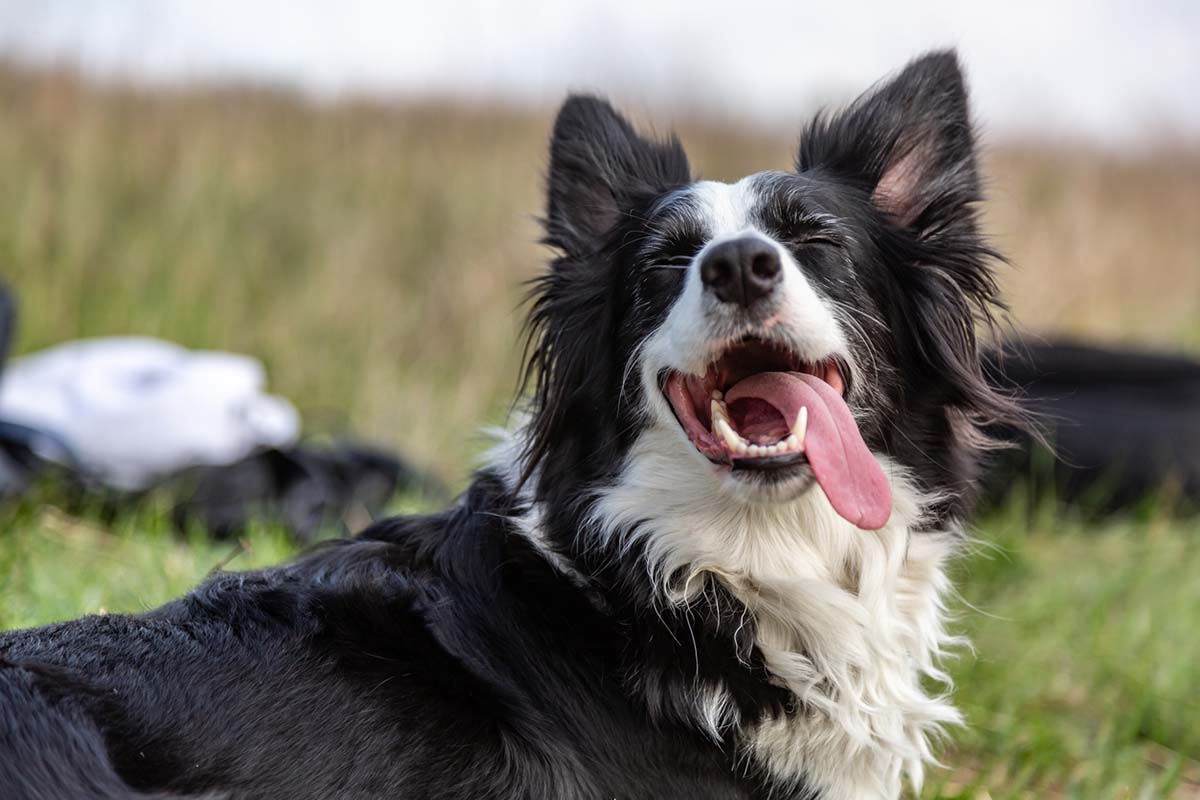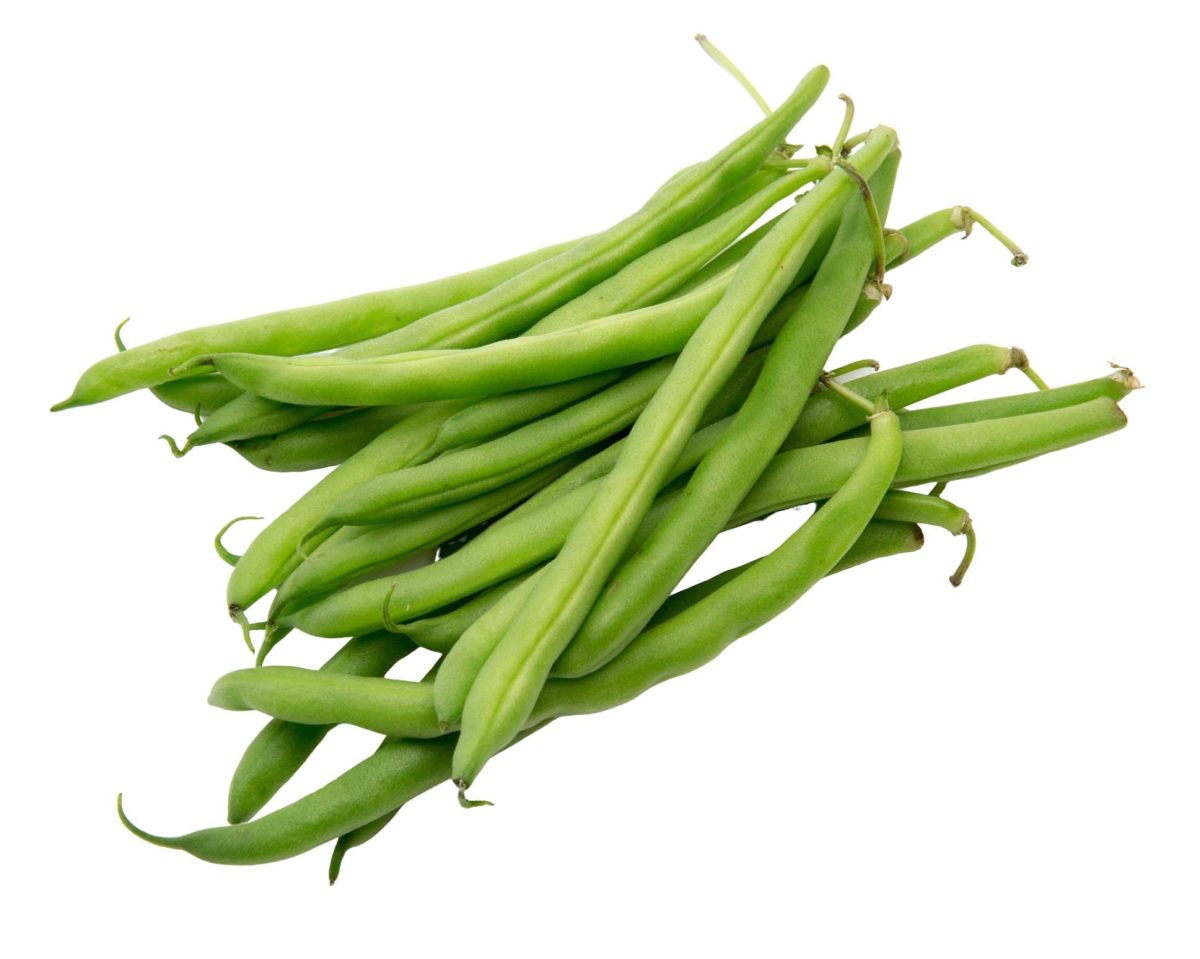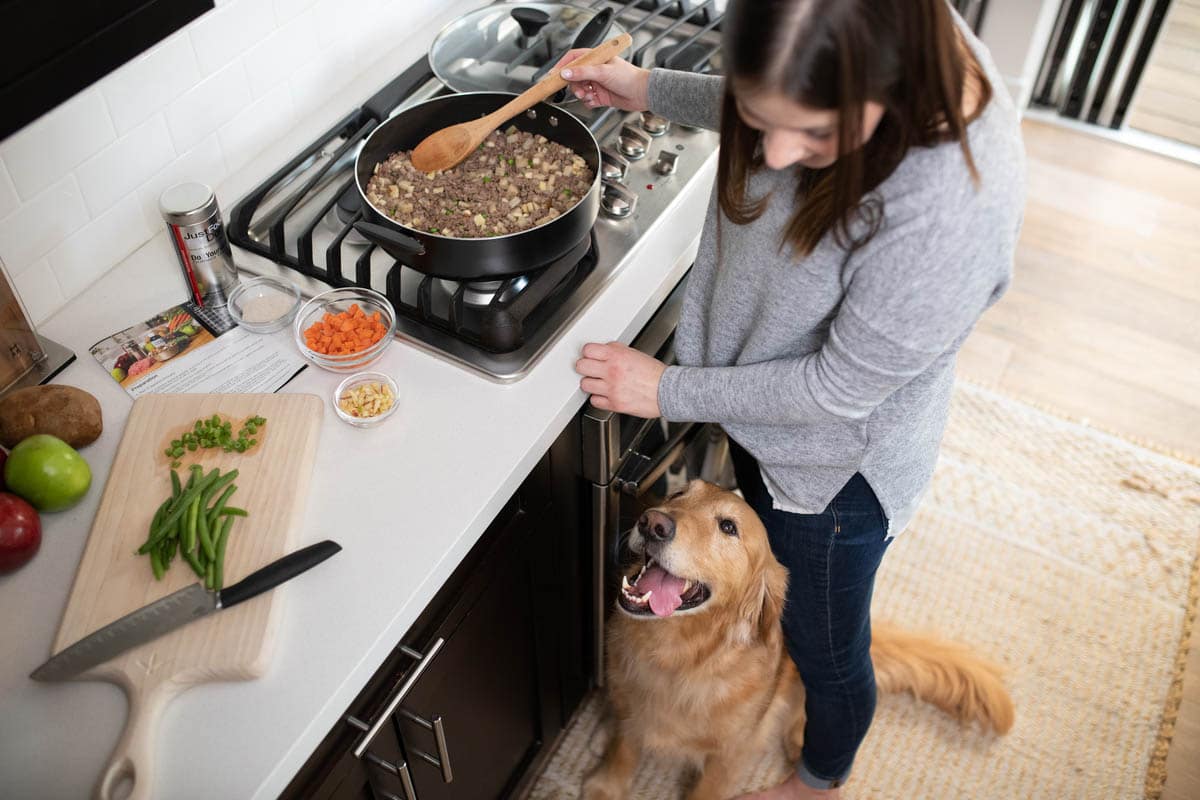What to Look for in Dog Food for Herding Breeds
Herding dogs are hard workers, and they must get high-quality dog food to meet their energy needs. Here's what to look for in dog food for working dogs.
Herding dogs are hard workers, and they must get high-quality dog food to meet their energy needs. The most common dog breeds that are used for herding include Australian Shepherds, or Aussies, Border Collies, German Shepherds, and Old English Sheepdogs.
Working dogs like these have high energy levels and needs that require dog food that meets their activity level. It’s vital for their performance as well as their overall wellness. But just what kind of dog food does this kind of dog need? What is the best dog food for herding dogs?
How Do You Know Your Dog’s Nutritional Needs?
According to Dr. Joseph J. Wakshlag, who is a professor of clinical nutrition and sports medicine and rehabilitation for dogs at Cornell University College of Veterinary Medicine, not all high-activity dog breeds are the same. The type of activity makes a difference concerning the energy demands it places on your best buddy.
That’s why a three-tier system is recommended for assessing your pet’s nutritional needs. The tiers are as follows:
Endurance Dogs
These are dogs that engage in activities that require a high, sustained energy level requirement, like racing sled dogs. They require high-fat dog food that yields some 500 – 600 calories per cup. But they don’t need that kind of diet all year; just during the season where they are most active. In their off-season, their diet doesn’t need to be so intense.
Medium Activity Dogs
This is the category that includes most open-field herding dogs. It also includes hunting dogs, working foxhounds, and search and rescue dogs. For these dogs, the best food has more fat and caloric density as they are building up to engage in heavy work or competition, and they also need to replenish their carbohydrates following exercise.
Sprinters
This category includes dogs that are working on agility, dock diving, flyball, and lure, but it also includes a subset of medium activity dogs that includes arena hunters and herders as well as tracking dogs.
These dogs work hard, but they don’t work for long periods of time. They need diets that are heavier on carbohydrates and lighter on fat content. A good dietary blend for them has some 40 – 50% carbohydrates and 12 – 17% fat and yields around 300 – 400 calories per cup of food. They also need to replenish their carbohydrates following exercise.
How Do Dogs Use Energy?
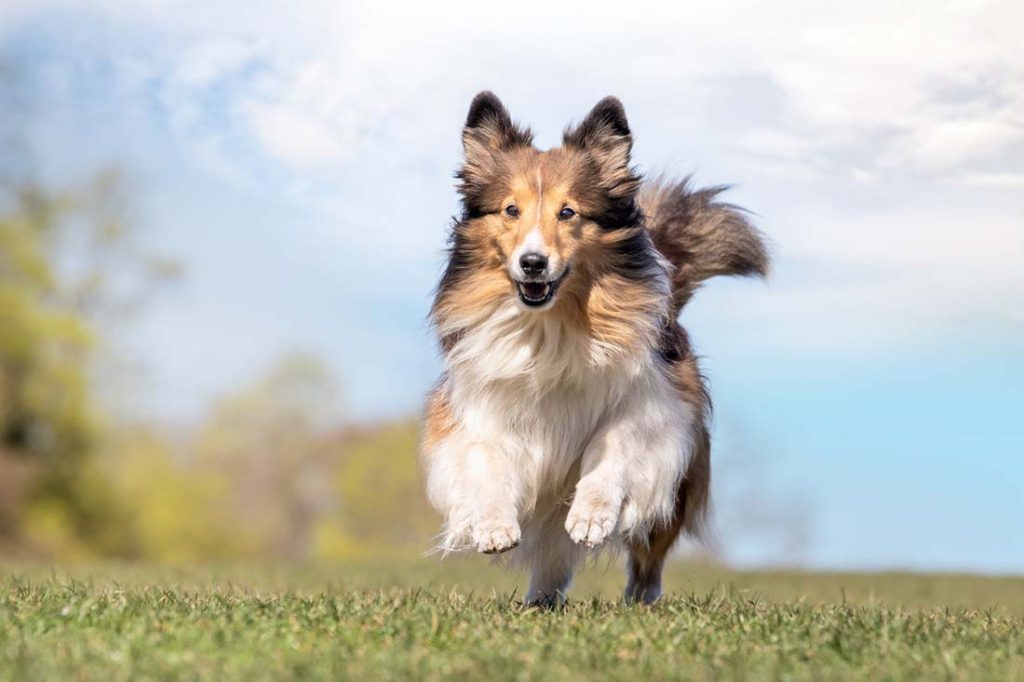
There are three systems that provide dogs with the energy they need to work hard.
- Immediate Energy: For quick energy for an activity lasting only 5 – 20 seconds, your dog burns adenosine triphosphate or ATP.
- Glycolytic Energy: This type of energy is for something that lasts from 20 to 120 seconds, and it involves the anaerobic breakdown of glucose in the liver.
- Oxidative Metabolism: This is the energy production that occurs when an activity lasts longer than about two minutes. It is the most efficient system, and it draws from various nutritional sources, such as fat, carbohydrates, and protein.
According to the American College of Veterinary Medicine, as the distance and duration of exercise increase, dogs tend to use aerobic fat as an energy source. Therefore, fat has the biggest effect on stamina in such dogs.
Fat is more energy-dense than either protein or carbohydrates, which means that working dogs can get additional calories by increasing the fat content in their diet rather than by giving them more food.
Of course, the calories your pooch needs depend on the duration of the activities he regularly engages in. Short-burst activities that are common in sports need only a small increase in calories, while endurance sports or activities like herding need more energy.
Herding dogs, like hunting dogs, fall into the category of moderate expected energy requirements, given that they typically traverse 2 – 10 miles while engaging in those activities.
Protein, Fat, and Carbohydrate Requirements for Herding Dogs
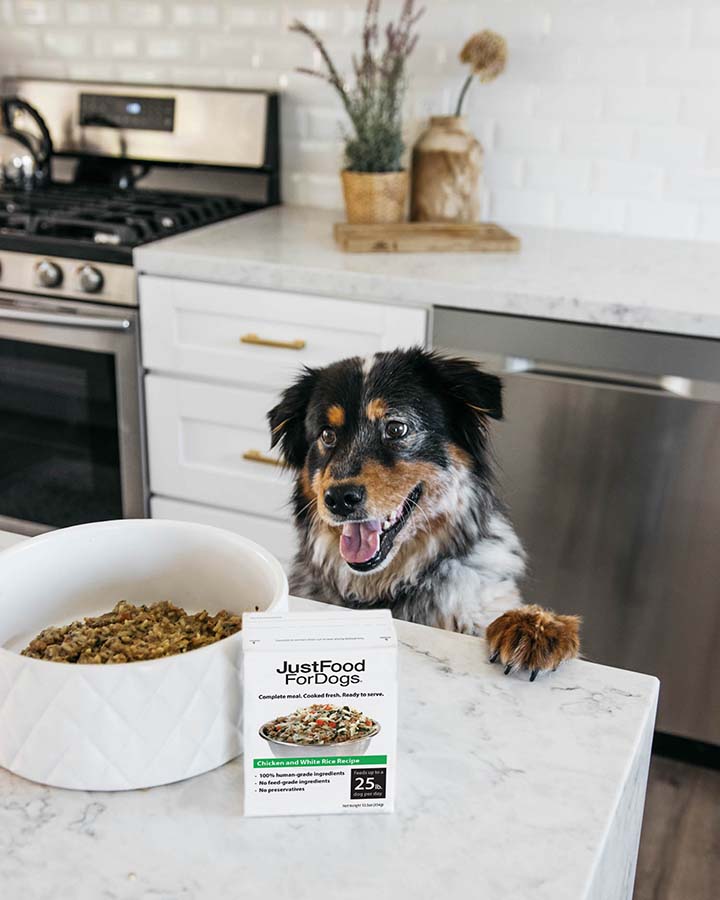
Given that herding dogs fall into the category of moderate activity, they need more macronutrients than short-distance canine athletes. Here’s a comparison of the short-distance and long-distance nutrient requirements.
Protein: Whereas the short-distance athletic dog needs 60 grams per 1000 calories, a herding dog needs 90 grams of protein per 1000 calories.
Fat: For fat, the short-distance working dog needs 40 grams per 1000 calories, while the herding dog needs 60 grams.
Carbohydrates: Whereas the short-distance canine needs 100 grams of carbs, the longer-distance working dog needs only 25 grams.
Commercial dog food brands typically meet the needs of the short-distance athletic canine but are not as well-suited for the herding dog. They typically need more fat for stamina and more protein sources with select amino acids to support gluconeogenesis, which is the process that allows their body to form glucose from non-carbohydrate sources.
It’s also helpful for herding dog diets to be lower in insoluble fiber. That increases the energy density for the higher calorie requirements of herding. It’s still good, however, to have some small amounts of soluble fibers and probiotics for normal intestinal bacteria.
What About Supplements for Herding Dogs?
Aside from the high protein and fat that herding dogs require, their active lifestyle means they also need other helpful nutrients. This is particularly true when it comes to maintaining healthy joints. Certain supplements are important to support dogs with joint tenderness due to everyday activity.
Specifically, glucosamine and chondroitin are an optimum blend that supports the body’s normal repair of connective tissue and joints. These nutrients provide your dog’s body with what it needs to help form new cartilage and prevent destructive enzymes from destroying tissue. These are especially helpful for large-breed dogs. They can begin taking supplements as young as 8 weeks old, though it’s never too late for your adult dog to start taking them too.
Omega-3 fatty acids are also very helpful and help promote normal inflammatory pathways to support your dog’s immune system health as well as his cognitive abilities and heart, skin, and eye health. Most traditional pet food brands available today can fall short of what your dog needs for this, which is 100 mg of combined EPA/DHA per kilogram of your dog’s weight.
Ensuring that they are also getting sufficient calcium and vitamin D is important for their overall health as well as for maintaining their bones and joints. Of course, antioxidants are also an important element for helping to protect your hardworking dog’s body. Sweet potatoes and certain veggies like carrots, beans, and kale are good sources of antioxidants.
A Fresh-Food Alternative for Working Dogs
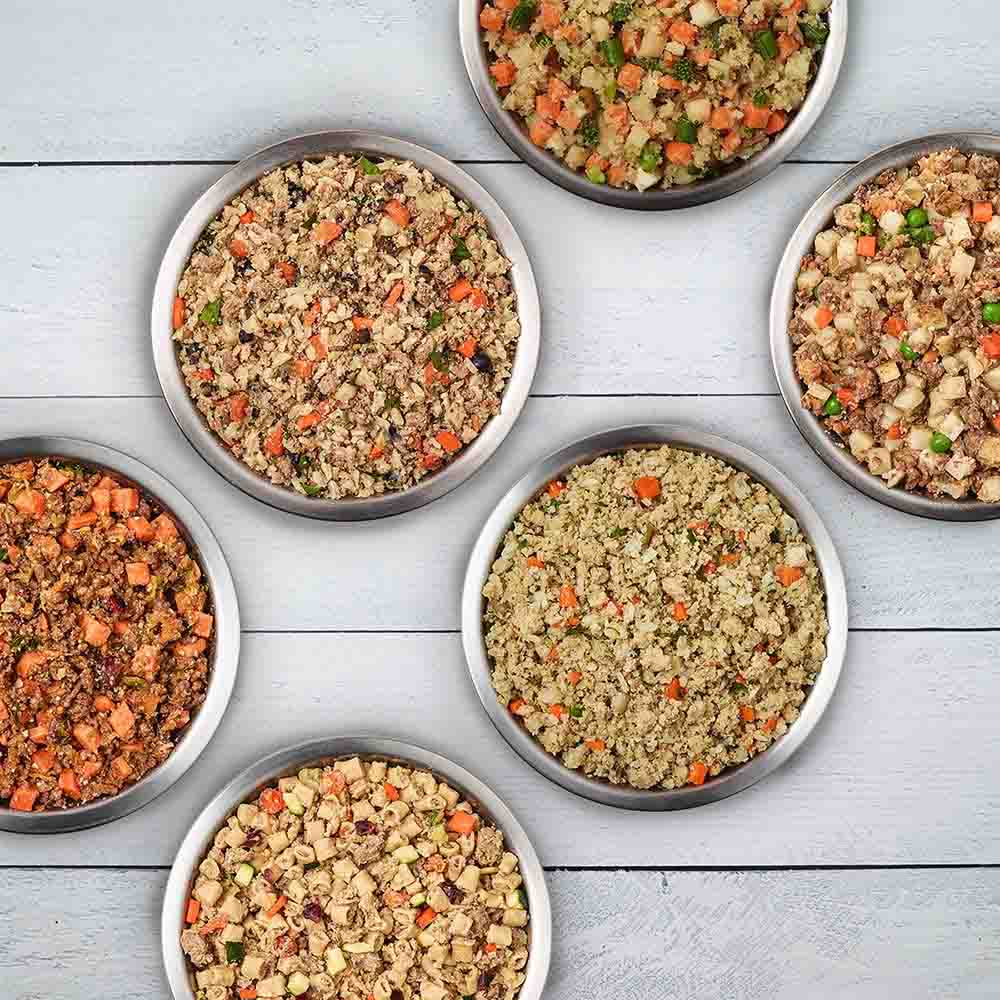
Clearly, a balanced diet is essential for a working dog, like a herder. It’s also important that you provide your pooch with adequate nutrition in all life stages, even if your herding dog is retired or just starting out in life.
If you’re a dog owner looking to go beyond kibble and questionable dry dog food, seek a dog food brand that can provide the nutrition your pooch needs. Preferably one without preservatives, fillers, additives, or other by-products that you can’t even pronounce. Whether you’re looking for puppy food, an adult dog diet, or something for senior dogs, there’s something for your best friend out there.
For the higher caloric needs of the active working dog, beef and turkey recipes, made with whole, fresh ingredients and delivering human-grade nutrition, are just what the doctor ordered. And speaking of the doctor, JFFD also offers veterinarian-prescribed recipes for various health conditions. We’ll even put together a custom recipe just for your pooch’s individual needs.
This content is for informational use only and does not replace professional nutrition and/or medical advice, diagnosis, or treatment. It is not a substitute for and should not be relied upon for specific nutrition and/or medical recommendations. Please talk with your veterinarian about any questions or concerns.
Menchetti L, Guelfi G, Speranza R, Carotenuto P, Moscati L, Diverio S. Benefits of dietary supplements on the physical fitness of German Shepherd dogs during a drug detection training course. PLoS One. 2019 Jun 14;14(6):e0218275. doi: 10.1371/journal.pone.0218275. PMID: 31199843; PMCID: PMC6570027.
